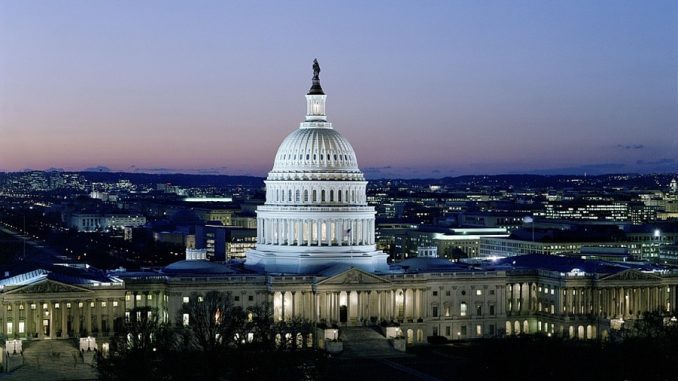
By USADC.
At this week’s annual meeting of Humana shareholders, the nation’s leading proponent of free-market investor activism plans to offer the insurer’s executives an opportunity to repudiate its long-standing support for failed ObamaCare policies and embrace market-based alternatives advanced by the White House and some members of Congress.
Humana’s shareholder meeting is scheduled for Thursday, April 20, 2017, at the company’s headquarters in Louisville, Kentucky. This will be the third time a representative of the National Center for Public Policy Research’s Free Enterprise Project (FEP) has attended a Humana shareholder meeting.
“This is the third time we will address Humana executives about ObamaCare’s failings, and we hope they will have a more open mind this time,” said National Center General Counsel and FEP Director Justin Danhof, Esq., who plans to attend on Thursday and participated in a past Humana shareholder meeting. “With President Trump determined to set a new course on health care policy and the congressional leadership behind his efforts, Humana risks losing a seat at the table if they continue to provide support for a system they won’t even work with anymore.”
On April 20, the National Center will post the text of its prepared question for Humana executives prominently on the National Center website after the shareholder meeting starts (which can be accessed here after posting). Any comments from the Free Enterprise Project after the meeting will be also be available on the site (directly accessible here ) within hours of the conclusion of the meeting.
At previous shareholder meetings, Humana CEO Bruce Broussard refused to cede any ground to National Center representatives who questioned him about the company’s support for ObamaCare. In 2014, when the National Center’s David Hogberg, Ph.D. asked Broussard if Humana would pledge not to take a bailout from ObamaCare’s “risk adjustment” scheme, Broussard refused and said the money would “ensure that our members have an affordable plan.” In 2015, Danhof questioned Humana’s support of ObamaCare through an amicus brief in the U.S. Supreme Court case of King v. Burwell despite the Humana website noting ObamaCare “falls short in addressing. . . rising costs.” Danhof brought copies of a dozen free-market ObamaCare alternatives to that meeting and asked Broussard to consider working with conservatives on a free-market alternative. Broussard would not commit to working with conservatives, but Humana recently announced plans to exit ObamaCare’s health care exchanges in 2018.
“Humana and other large insurance companies worked in lock-step with the Obama Administration and liberal congressmembers to advance, promote and defend ObamaCare. We repeatedly brought concerns over ObamaCare’s market-distorting schemes to their attention, but our concerns were dismissed. Now that Humana and other insurers are exiting many ObamaCare exchanges and otherwise suffering the ill effects of the law, the timing is optimal for a new path forward,” said Danhof. “While the most recent congressional effort to repeal and replace ObamaCare has stalled, there will be plenty of opportunities to enact change. Humana owes it to the American people to work with President Trump and Congress to craft policies that expand access to care and drive down health care costs.”
Earlier this year, another health care provider indicated to the National Center that it would be willing to work on replacing ObamaCare. Walgreens Boots Alliance Chairman James Skinner told Danhof at the pharmacy giant’s annual shareholder meeting that his company would be willing to work with the Trump Administration in finding a free-market alternative to ObamaCare.
Launched in 2007, the National Center for Public Policy Research’s Free Enterprise Project is the nation’s preeminent free-market activist group – focusing on shareholder activism and the confluence of big government and big business. Since 2014, National Center representatives have participated in nearly 100 shareholder meetings to advance free-market ideals in the areas of health care, energy, taxes, subsidies, regulations, religious freedom, food policies, media bias, gun rights, workers’ rights and many other important public policy issues. The Humana meeting will mark FEP’s fifth shareholder meeting attended so far in 2017.
The National Center‘s Free Enterprise Project activism has yielded a tremendous return on investment:
- FEP‘s highly-publicized questioning of support for the Clinton Foundation by Boeing and General Electric helped trigger an FBI investigation of the Clinton Foundation‘s activities that dominated the 2016 presidential campaign.
- FEP inquiries prompted Facebook to address political bias against conservatives in social media.
- Company executives acknowledged media bias at ABC News (Disney), the Washington Post and CNN (Time Warner) in response to FEP‘s challenges, which helped to bring about more objective reporting and more balanced political representation.
- FEP‘s “Employee Conscience Protection Project“ strengthened protections for the political beliefs and activities of over five million workers at 13 major U.S. corporations.
